The pandemic and economic collapse dealt a severe blow to the progress that was being made toward eradicating extreme poverty, improving health and education, and reducing hunger and inequity. Those are the Sustainable Development Goals, aka the Global Goals, the World’s ‘to-do list’ for a better, fairer world by 2030.
“A lot of of the people who were in precarious situations ended up falling deeper into poverty,” explained one of the leading experts on the goals, Vishal Gujadhur, an economist at the Bill and Melinda Gates Foundation. “And that’s something that’s really disappointing and that’s really a setback to the SDGs.”
But here is the good news. Or at least what co host Edie Lush calls “the better news.”
“Due to really strong action from individuals from governments, from communities we’ve averted the worst-case scenario,” Gujadhur reports, based on the Gates foundations latest Goalkeepers report on the SDGs.
The “apocalyptic” numbers being reported at this time last year are already beginning to turn around, Gujadhur said. The recovery is uneven. The poor have suffered the worst and are recovering more slowly, both between countries and within countries.
The world needs to redouble efforts to get back on track toward the global goals. Every effort counts and local, small-scale efforts can add up to big change. We visit a hotel in Rwanda, empty during lockdowns, that stepped up by using its kitchen and staff to deliver meals to hungry kids at the local primary school. “They were happy,” one of the hotel trainees, Jesca Rusaro, said of the school children. “And that makes me happy, too.”
Featured guests

Before joining the foundation, Vishal worked at Standard Chartered Bank. He helped establish the bank’s public-sector group, which provides advisory services and financing solutions to entities such as developing country ministries of finance, central banks, and multilateral development banks. His clients included two West African ministries of finance, African and Asian central banks, and the World Bank.
Earlier, he worked in Liberia as an advisor to the finance minister at the U.S. Treasury’s Office of International Affairs as an international economist, with the People’s Bank of China, and at the Federal Reserve in Washington, D.C. He has an MPA in international development from Harvard’s Kennedy School of Government and a B.A. in economics from Wesleyan University

Ian Williams is General Manager of the Mantis EPIC Hotel and Suites in Rwanda’s Nyagatare District, an eco-hotel near the northern entrance of Akagera National Park. When lockdowns cut off most travel, Williams worked with members of his staff to use the hotel’s kitchen and resources to help feed kids at the local primary school.

Jesca Rusaro is a trainee in food and beverage at the Mantis EPIC Hotel and Suites, Nyagatare District, Rwanda.

Nyesiga Charles Kabujangari is a receptionist at the Mantis EPIC Hotel and Suites, Nyagatare District, Rwanda.

Dr Nusrat Sanghamitra is an Indian innovator, scientist, entrepreneur and motivator. She started her research journey with a mission ‘to find a better anticancer drug with fewer side effects’. She is a chemist by training with a fascination for biology. She obtained her PhD from one of India’s premier research Institute Indian Institute of Science, Bangalore. After a Postdoctoral Fellowship in Leiden University, The Netherlands and Kyoto University, Japan she founded CyCa OncoSolutions (now CyGenica) to translate her ideas and research (at the interface of chemistry, biomaterials, cell biology and its applications in anticancer drug development) from bench to bedside, to make an impact in oncology and to make significant contribution to the global fight against cancer. Her academic experience in the field of biofunctional chemistry spans over 17 years. Her research has been well cited. She received the Foresight Fellowship in Molecular Machines in 2018, and the National Award from the President of India for Technology Startup that same year.
In this episode we heard Dr. Nusrat Sanghamitra on the impact her innovation is having in the global fight against cancer.
Special thanks to:
The Royal Academy of Engineering’s Leaders in Innovation Fellowships, supporting innovators developing creative solutions to further the Global Goals.
In case you were looking for the link to help the school food program here at the end of the show notes, where Claudia kept saying it would be, here it is. Again: https://www.ccfa.africa/support/#get

